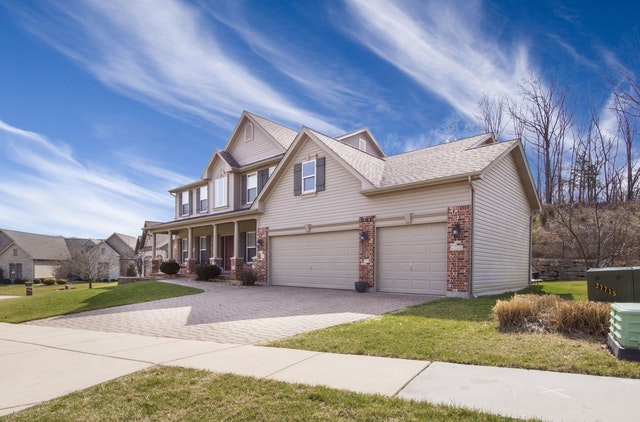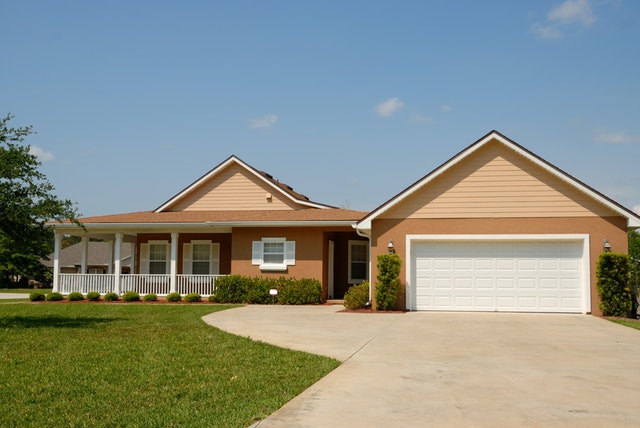 While a kitchen herb garden or pot-grown tomatoes may be commonplace in both suburban backyards and on urban condo patios, an increasingly large number of homeowners look to backyard farming as a way to relieve some of the stresses of modern life. Other benefits include cutting grocery bills, living a more sustainable life, and teaching children about food.
While a kitchen herb garden or pot-grown tomatoes may be commonplace in both suburban backyards and on urban condo patios, an increasingly large number of homeowners look to backyard farming as a way to relieve some of the stresses of modern life. Other benefits include cutting grocery bills, living a more sustainable life, and teaching children about food.
The New Food Landscape
Do new trends signal a return to simpler times, or are they a pushback against higher food prices and loss of control over the food supply? Is it a lasting change that will spread across the country or a trendy, elitist phenomenon?
The answers may not be simple, but a huge increase in the popularity of farmers’ markets and community gardens leads some analysts to predict that a major change in attitude as well as lifestyle is taking place in American neighborhoods. There is evidence that family health and nutrition improve when access to gardens and fresh food is made easier. It is as true in affluent neighborhoods as it is in disadvantaged communities.
In cities as diverse as Seattle, Boston and Fort Worth, Texas, community groups and activist neighborhoods have developed community gardens. Some of the more innovative offer food free for the taking to anyone in need. Seattle boasts more than one edible park, meant to help eliminate the city’s food deserts. Numerous community gardens throughout the Dallas-Fort Worth metroplex encourage pick-your-own plots that are open to all.
Growing Food for Personal Consumption
For homeowners who want to grow their own fresh produce and salad greens, the way forward is not always as easy. Zoning stipulations and HOA regulations sometimes specify that food plants are unauthorized landscaping elements. The times, however, have begun to change in many communities.
New subdivisions in some cities offer community gardens for homeowners that are every bit as popular as community pools and clubhouses. They exist in million-dollar neighborhoods as well as more modest surroundings. Other cities allow some types of food gardens while discouraging plants like corn. Still others allow edible plants only behind a backyard fence.
The Future Of A Backyard Farm
The movement goes beyond growing edible plants, however. Keeping chickens and even goats is allowed by some municipalities, and urban farmers experience success with soil-free growing methods, including aquaponics, hydroponics and aeroponics.
While these alternative methods are usually found under roof, some aquaponics systems — which incorporate growing fish and plants together in a closed loop system — thrive in simple outdoor hoop-house structures. The growth of food-based “cottage businesses” is also worth watching.
In short, as huge farms disappear from the scene, smaller home-based farms may take their place, not only in the Midwest, but in cities large and small from coast to coast. If you are in the market for a new home with a garden-friendly yard or want to create greater sustainability in or near your home, contact your trusted real estate agent today to see what the housing market has to offer.
 Is it worth it to add smart appliances or automated features if you’re selling a home? Just how much connectivity do buyers want? And what exactly do the terms refer to in terms of home updates.
Is it worth it to add smart appliances or automated features if you’re selling a home? Just how much connectivity do buyers want? And what exactly do the terms refer to in terms of home updates. Multi-generational households and the growing preference on the part of many retirees toward “aging in place”have altered home design in recent years. Interiors are more open, more functional and more adaptable that they were even a decade ago. Spaces tend to be less formal; living space is better integrated with work space like the kitchen, and rooms tend to serve more than once purpose, both for quiet pursuits and for family gatherings.
Multi-generational households and the growing preference on the part of many retirees toward “aging in place”have altered home design in recent years. Interiors are more open, more functional and more adaptable that they were even a decade ago. Spaces tend to be less formal; living space is better integrated with work space like the kitchen, and rooms tend to serve more than once purpose, both for quiet pursuits and for family gatherings. This summer, quality homes are being scooped up almost as fast as they’re being listed – and for top price. Yes, it’s a seller’s market out there, which is great news if you’re planning to list your home. For those looking for a home, the competitiveness can be frustrating and aggravating.
This summer, quality homes are being scooped up almost as fast as they’re being listed – and for top price. Yes, it’s a seller’s market out there, which is great news if you’re planning to list your home. For those looking for a home, the competitiveness can be frustrating and aggravating. Rules and covenants of a homeowners association can be a bit overwhelming, especially for a first time homeowner. Understanding that the regulations are designed to protect the value of your home helps make some restrictions easier to live with.
Rules and covenants of a homeowners association can be a bit overwhelming, especially for a first time homeowner. Understanding that the regulations are designed to protect the value of your home helps make some restrictions easier to live with. Nearly 70 million American households include at least one pet, but most prospective buyers won’t want to see evidence of pets in a home on the market.
Nearly 70 million American households include at least one pet, but most prospective buyers won’t want to see evidence of pets in a home on the market.